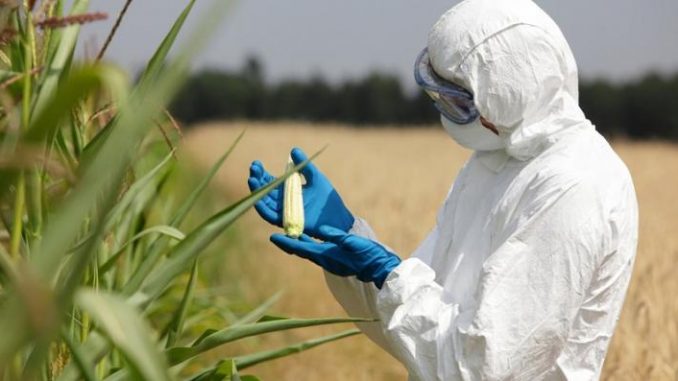
Modern biotechnology promises remarkable advances in agriculture, medicine and industrial products. The genomes of many plants and animals are being mapped, and techniques are being developed to manipulate genetic material and fuse cells beyond normal breeding barriers.
These advances have led to the appearance of the development of resilient and sometimes totally new projects referred to as Living Modified Organisms (LMOs), or commonly as Genetically Modified Organisms. Some of these may be beneficial to humans, but they need to be properly assessed for potential risks, monitored and tested over extended periods to ensure their safety.

What do we mean by biosafety and why is it important?
Biosafety refers to the safe handling, transport and use of organisms – whether animals, plants or bacteria – that have been modified using modern biotechnology.
The Government of India has committed to developing and deploying agricultural biotechnology to meet the needs of rural communities and growing urban populations. But it wants to do this safely and in compliance with its international commitments.
LMOs are any living organism with a novel combination of genetic material obtained thanks to modern biotechnology. While LMOs can bring benefits to agriculture, nutrition and health, they can also – if not used safely – harm species and disrupt ecosystems.
“As the country with the second biggest population in the world, if India can get biosafety systems right, that’s a huge benefit for humankind,” says Alex Owusu-Biney, a UN Environment biosafety expert.
UN Environment works in partnership with the Global Environment Facility (GEF) and the Convention on Biological Diversity to assist the Parties to the Cartagena Protocol (of which India is one) to meet their commitments under the agreement.
The Cartagena Protocol on Biosafety, a supplement to the Convention on Biological Diversity, is an international agreement that aims to ensure the safe handling, transport and use of organisms that have been modified using biotechnology. The Protocol, which entered into force in 2003 and has 171 Parties, aims to guard against adverse effects on biological diversity.
The project and what it has achieved
The UN Environment-led 2012-2016 India project titled “GEF Phase II Capacity Building Project on Biosafety” was officially closed in June 2017 after achieving its objectives.
Key partners included international and national agencies, among them the ILSI Research Foundation, which provided technical support on risk assessment and risk management; Research and Information Systems India – support on Socioeconomic Considerations; and India’s Ministry of Environment, Forests and Climate Change, which implemented the project with support from the Biotechnology Consortium India Limited. This was a unique Public-Private sector and multi-stakeholder partnership.

The project built capacity in human and infrastructure resources for improved biosafety management in line with the National Biodiversity Action Plan, the National Biotechnology Development Strategy, the National Environment Policy, and the Cartagena Protocol, among others.
It also strengthened the biosafety management system in India, including the handling, transport, packaging and identification of LMOs; and helped raise awareness of the issues. A survey was done of the pipeline of genetically engineered crops being developed in India.
Eight Biology Documents on Sorghum, Tomato, Papaya, Chickpea, Pigeon Pea, Mustard, Potato and Rubber were developed to assist in Risk Assessment and Risk Management. This is the first comprehensive national intervention outside the Organisation for Economic Co-operation and Development to develop such supportive tools.
Under the project, four laboratories for detection of LMOs – the National Bureau of Plant Genetic Resources, Punjab Biotechnology Incubator, DNA Fingerprinting and Transgenic Crop Monitoring Laboratory, and the Export Inspection Agency in Kochi – have been strengthened. They are now officially gazetted as the National Referral Laboratories for the detection of LMOs.
The Nagoya-Kuala Lumpur Supplementary Protocol to the Cartagena Protocol on Biosafety will enter into force on 5 March 2018.
Source: UN Environment (press release)

Leave a Reply